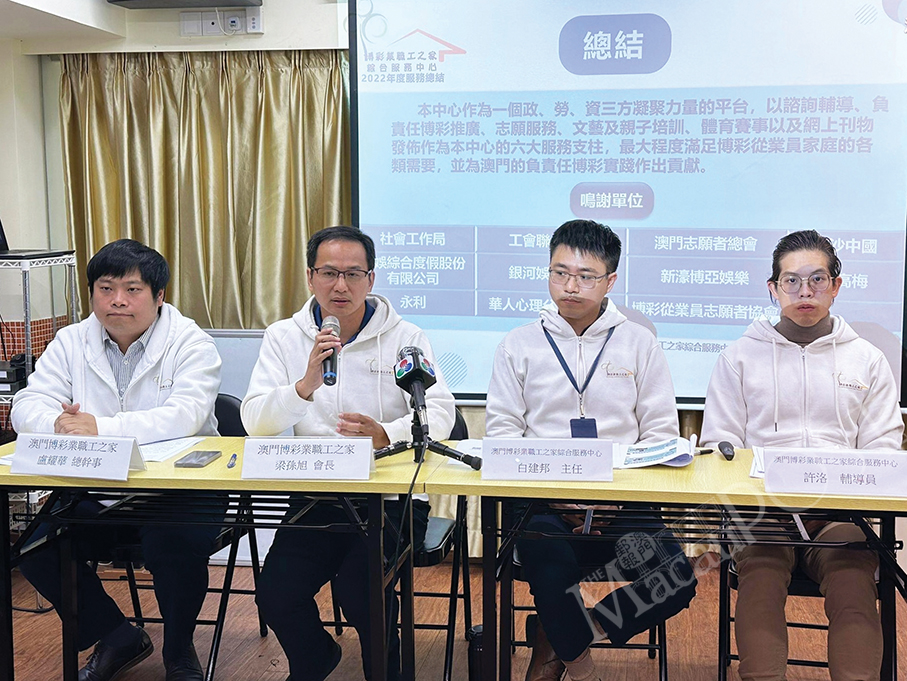A false imprisonment victim has been given two years behind bars after providing false testimony at the court in order to downplay the seriousness of the culprit’s crime, a statement by the Court of Final Appeal (TUI) said yesterday.
False imprisonment is the state of being imprisoned without legal authority.
According to the statement, the case took place on November 4, 2018, when “A” borrowed HK$500,000 from “B” and “C” at a VIP room in a casino in Macau. The statement said that after “A” gambled away all the money, “B” and “C” locked him up in a hotel room. The statement said that after “A” said that he was unable to pay “B” back, “B” hit and kicked him continuously and would not let “A” leave the room.
The statement noted that “A” called the police for help on November 7 and was rescued from the hotel room. The statement added that following his release from false imprisonment, “A” made a statement accusing “B” at the Examining Magistracy of the Court of First Instance (TJB). The statement underlined that after “A” had made a sworn statement under oath, he told the court that after he had told “B” he was unable to pay his debt, he was violently treated and got locked in a hotel room. The statement stressed that “A” signed a statement swearing that his testimony was true.
Yesterday’s statement by the court said that a few days later “A” went to the mainland, and “B’s” brother (“D”) called him and asked for “A’s” help and hoped that he could forgive “B” for what he had done. The statement said the brother told “A” that a lawyer would meet up with “A” and teach him how to answer the police and judge’s questions in the court.
The statement noted that in March 2019, the brother took “E” to meet up with “A” in Zhuhai’s border town of Gongbei where he taught “A” how to answer the questions step by step in order to downplay the crime that “B” had committed. The statement said that “E” suggested to “A” that instead of saying that “B” deliberately poured hot water on “A’s” arm, he could say “B” accidentally spilled hot water on his arm.
According to the statement, when “A” attended the trial as a witness in court, he gave the “new version” of the story, which he had been taught by “E”. The statement said that the police and judge reminded “A” repeatedly that he had taken an oath before giving testimony, if he said anything false it would be a crime. However, the statement underlined that “A” insisted that the “new version” was the “real version”.
The statement said that due to “A’s” false testimony, the Court of First Instance decided to charge “A” with the “crime of false testimony”, and according to Macau Penal Code’s Article 324 Section 3, “A” was looking at two years’ imprisonment. Meanwhile, “E”, who acted as an abettor in this case, also faced the same charge but was given three years and six months jail time.
The statement said that both “A” and “E” were dissatisfied with the sentence and appealed to the Court of Second Instance (TSI). The statement added that “E” emphasised that he was the accessory in the case but not the abettor, therefore the penalty should be less than the one for “A”.
According to the statement, on the one hand, the Court of Second Instance thought that A’s false testimony severely hindered the legal process and must be seriously punished in order to maintain an orderly legal system.
On the other hand, the statement said that according to the legal definition of accessory, the person only provided mental and material support to the offender. However, the statement added, “E” provided more than that, he even provided “A” with specific instructions and taught him how to lie in court. The statement stressed that “E” had a clear motive to manipulate “A” to lie in court in order to downplay “B’s” criminal action, which consequently would lead to a less serious penalty. The statement said that if it was not for “E”, “A” would not have committed the crime, therefore “E” is the abettor and not an accessory to the crime.
According to the statement, the Court of Second Instance decided to reject the appeal, i.e., both “A” and “E” will be imprisoned for two years and three years and six months respectively.








